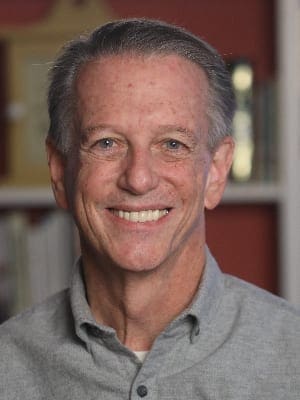Unless you were trapped in a hole somewhere, you know that the eyes of the world were riveted on an obscure copper mine in Chile last week, as miners were rescued from what seemed likely to be their underground grave.
Credit the nation of Chile for turning this disaster into this year’s No. 1 feel-good story. Only the most calloused of hearts among us could watch the reunion of loved ones and not fight back tears.
The rescue also stirs a bigger hope, as our minds race to envision possibilities as we recognize how global technologies and skills were united to unlock fellow humans from their underground imprisonment. Like the aftermath from Haiti’s earthquake when military forces were transformed into rescuing forces, those with eyes to see recognized the ancient vision of swords being beaten into plowshares and spears turned into pruning hooks.
Moments like this grab our attention, I believe, because they tap into something rare and yet familiar and deeply sacred. Not division or competition or religious one-upmanship or demonizing, but using human energies to manifest real love for all of God’s children. It’s an agenda that trumps nationality or religious particularities to unite humanity in common cause for the common good.
True, there are differences between various faiths. But it does not honor God, nor does it heal the world, for us to continue our incessant and child-like competition of “my religion’s better than yours” and “my God can beat up your god.”
What the God of all people wants, and at the heart of our humanity, is a desire for healing, redemption, rescue, restoration. In fact, where those things are found, there is God. Some would say that those acts are God.
Ask yourself: Have you ever witnessed a theological debate and come away with a deep, inner sense that you were in the presence of the Holy? To the contrary, most observers (and participants) of religious mudslinging feel, well, muddy.
So may the rescue in Chile not only free the men from the earth, but liberate our thinking about what is important.
But let’s not allow the euphoria of this event to mask the larger reality. Gratefully, 33 men were put on level ground again. But how many other people remain beneath the surface of life, trapped in a pit of despair and impossibility? How many other men, women and children lie crushed beneath a weight of obstacles that keep them from being fruitful as God commanded humans in Genesis 1?
Chilean residents celebrated after the rescue, contending that “this is what we do, we stick with those in need and help them.” I hope so. What about all the other Chileans who await rescue?
The reality is that, as glitsy and heartening as the mine rescue was, it is symptomatic of an economic system based on copper that has people trapped, both literally (39 fatalities a year in Chilean mines) and financially.
Long after the international news teams pack up their lights and microphones to head off to the next sensational story, the reality of Chile’s mine safety, not unlike the perilous work in Appalachian mines, will go on. Long after Chile’s time in the spotlight, the realities of Chile’s economic system will continue to cry out for help from the mineshafts of misfortune.
It’s true everywhere. Years ago the eyes of our nation were fixed on Baby Jessica who fell in a well in west Texas. We celebrated her rescue, as we should have. But our cheering muffled the countless cries of other children who had fallen into holes dug for the benefit of some, but ended up being disastrous for those who came later, like Jessica. These needs seem less dramatic but are equally debilitating.
There is work to do in our world. God’s work. Rescuing work, not just from natural disasters like Haiti’s earthquake, but also from human-created situations like the mine in Chile. And more, from systems that seem to welcome occasional crises like the Chilean mine collapse as a diversion from the larger complexities that imprison the masses (one billion people live on less than one dollar a day) while we’re distracted elsewhere.
A rescuer named Paul said, “our struggle is not against enemies of blood and flesh, but against the rulers, against the authorities, against the cosmic powers of this present darkness, against the spiritual forces of evil in the heavenly places.”
It was easier when I read these words as spooky images of supernatural ghosts and demons. Today I see them in the familiar systems of the world in which I live and participate.
The struggle is hard and complex and exhausting. But it’s where God is, finding people to pull hands and plug holes one at a time.
Joe Phelps is pastor of Highland Baptist Church in Louisville, Ky.
A minister in Louisville, Kentucky, for 21 years as pastor of Highland Baptist Church, Phelps is now Justice Coordinator for Earth and Spirit Center. He leads, along with Kevin Cosby, EmpowerWest, a black-white clergy coalition calling for recognition, repentance, and repair of injustices to black Louisvillians.

